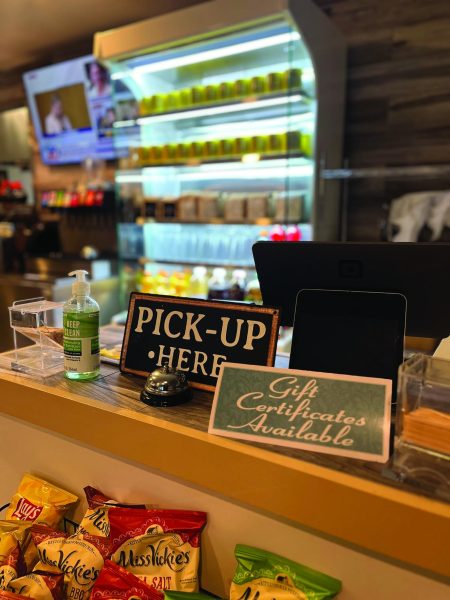Opinion: Treat first responders with kindness
November 30, 2022
One in every five adults will see the emergency room at least once per year according to the Centers for Disease Control. This means doctors, EMTS, nurses, firefighters, police officers and those in the service are constantly responsible for the care of thousands of individuals, yet how often do these first responders feel appreciated for the work they partake in?
The reality of being a first responder means sacrificing your own personal life, to prioritize the lives of others. As you know, not everyone has the necessary emotional and physical skills to sustain such a demanding job.
This most often means working long hours way beyond a normal working day, seeing gruesome unsightly scenes, putting your own life on the line for the safety of others, and giving up holidays or family events to ensure that others receive the best care while in your hands.
In addition, there is a certain level of emotional strength that is necessary for these individuals. Firefighters witness other peoples homes and lives being torn apart right before their own eyes. EMTS don’t have the ability to save every life when they approach a scene where life threatening issues are occurring. Doctors have to deliver both good and bad news, often telling family members that their loved one didn’t make it. Service members are constantly on guard and exposed to extremely unsightly things leaving some of them with PTSD. Police officers can end up the victim in any escalating situation. It’s important to realize how much of their own emotional and physical well being is also put on the line for the sake of their career.
To put this into perspective, The CDC states that first responders are at an elevated risk for dying by suicide because of the envirnoment they work in. CDC states, “Occupational stress in first responders is associated with increased risk of mental health issues, including hopelessness, anxiety, depression, post-traumatic stress, as well as suicidal behaviors such as ideation and attempts.”
The harsh reality of being a first responder means that your occupation is prioritized over your health. When they are given directives, it is based upon other people’s state of being and what their needs are at any given moment. These types of jobs do not compare to a nine to five. Often, you cannot just clock out when your shift is over, vacation and sick time can easily be denied, you may be asked to cover shifts or work way beyond your normal scheduled hours, and your personal life takes no precedents over the health and safety of others. All the while, they are criticized for not doing more and are undervalued by the world and hardly ever feel recognized for the work that they do.
In fact, there is such a huge stigma surrounding first responders because of the worlds perspective. We begin to view them as people who are “meant for that job” as though we take away the fact that they are still human beings who experience emotions and struggles just like all of us. We often think doctors become comfortable with reporting a death to family members, but it is clear that these jobs can be and are extremely detrimental to one’s mental state of being. Now, this does not mean that becoming a first responder means that you are guaranteed to have mental health issues, however, we as humans aren’t designed to see traumatic occurrences on a daily basis with no effect on our brains.
In the Brain Warrior’s Way podcast hosted by the number one brain doctor in the world, Doctor Daniel Amen, a speaker known as, Dr. Nancy Bohl states, “when I talk to them, I tell them that they picked the job. The job didn’t pick them. They’re rescuers. Many of them come from a background where they were rescuing, whether they were rescuing an alcoholic father from hurting their mother or they were rescuing the kid that was bullied at school or the female that didn’t have good parents. They truly have a calling, and many of them, if you ask them when they’re getting hired, “Why do you want to do this?” … I don’t think that it’s just something that they just say. I believe they really feel it. They say they want to make a difference. They want to stop crime. They actually want to be able to physically and emotionally help people.”
It is interesting to realize why they chose the job considering the fact that most people do not want to go into a job knowing it is a threat to their well being. However, this really gives us perspective and allows us to realize that they are not only giving up parts of their lives for their career but they are doing the best they can and maybe the next time you come into contact with a first responder, you will thank them for their kindness and ability to serve others, instead of discussing some of the traumatic parts of their career or things that they could be doing better.










